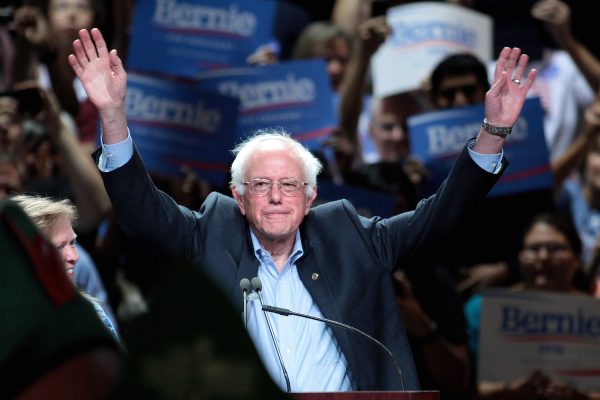
After the New Hampshire primary, I argued it was too soon for center-left Democrats to panic about a possible Bernie Sanders nomination. Now that it looks like the self-described socialist will walk away with at least half of Nevada’s delegates, it’s time for his opponents to worry.
Unlike Republicans, Democrats don’t award their delegates to whoever receives the most votes in a given state. So there is little risk of Sanders winning a majority of the delegates to the national convention in July against two or three opponents, like Donald Trump was able to prevail with 45 percent support against Ted Cruz, John Kasich and Marco Rubio in 2016.
However, if more candidates split the anti-Sanders vote, each would struggle to meet the 15 percent support required to qualify for delegates. Under those circumstances, Sanders could win a majority.
Ideal scenario
On the other hand, if all but one of the more moderate candidates drop out, Sanders could also win. He got 43 percent support against Hillary Clinton in 2016 and polls suggest he would defeat any of his opponents one-on-one this year.
Ideally, then, two or three candidates, like Joe Biden (who has strong support from black voters), Michael Bloomberg (who appeals to centrists) and Elizabeth Warren (who could compete with Sanders for progressives and voters who want a female nominee), stay in the race, divide up the anti-Sanders vote, which is still 70-75 percent, and then decide between themselves at the convention in Milwaukee who will lead the ticket.
The problem
The trouble is that all the lower-polling candidates may want to stick around until Super Tuesday on March 3, when fifteen states and territories vote, to see if they can make it into that top three or four.
By the end of that day, some 40 percent of the delegates will have been allocated and Sanders could have amassed an insurmountable lead.
